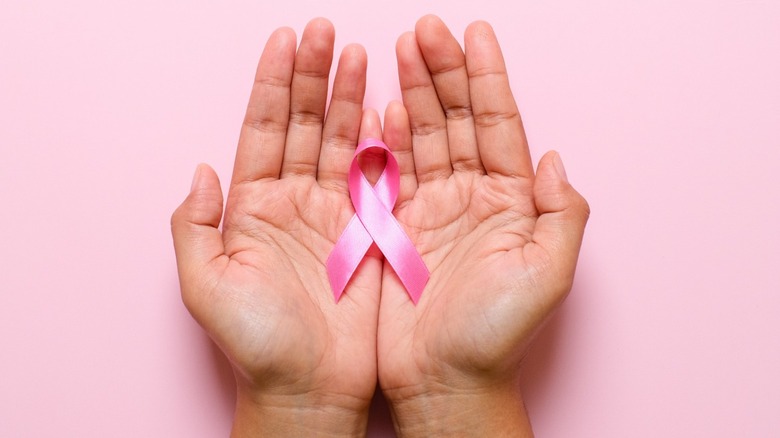Some Early-Stage Breast Cancer Patients May Be Able To Skip Radiation, According To New Research
Results of a new study found that some women with early-stage breast cancer may be able to forgo radiation as part of their treatment (via U.S. News & World Report). Timothy Joseph Whelan, chair of breast cancer research at McMaster University in Hamilton, Ontario, Canada announced the findings at a meeting of the American Society of Clinical Oncology (ASCO). The study, which had a survival rate for participants of 97% after a five-year follow-up, included 500 women over the age of 55 who had low-grade luminal-A breast cancer with small tumors that had less than 13.25% of a protein marker called Ki67. Luminal-A breast cancer is a genetic sub-type that grows and spreads slowly and makes up between 50% and 60% of all breast cancer diagnoses.
The results revealed that the participants who did not undergo radiation had roughly only a 2% chance of the breast cancer returning. Up to 40,000 North American women fit this particular genetic profile, meaning they could potentially skip radiation with little to no risk of recurrence. Better screening and surgical techniques have contributed to a decrease in breast cancer in recent decades, Whelan explained. As a result, researchers were interested in confirming that radiation therapy, which can lead to side effects and damage to the breast, may not be necessary for everyone.
According to ASCO, close to 288,000 invasive breast cancer diagnoses are expected in the United States this year, per U.S. News & World Report.
What is Ki67 and how is it discovered?
According to an article in the medical journal Frontiers in Endocrinology, Ki67 is a protein that health practitioners use as a tumor marker to determine a breast cancer patient's prognosis and how the patient will respond to therapies. In healthy breast tissue, the presence of Ki67 is low. A number of studies have suggested that people who have been diagnosed with early-stage breast cancer and a high percentage of Ki67 are likely to see a recurrence and will also have a lower survival rate. While a high expression of Ki67 in breast tissue would be unwelcome news, studies have also shown that high Ki67 responds well to chemotherapy treatments in some scenarios.
Ki67 can be uncovered from a breast biopsy, a procedure where your doctor removes a small portion of suspicious breast tissue, per Verywell Health. When sending your breast tissue sample out for analysis, your doctor may request the lab to perform a proliferation marker test, which can determine the levels of Ki67 in your breast tissue. 10% or less of Ki67 is considered low; 20% or above is considered high. While a Ki67 test reveals some useful information, it is only one of many tests that your doctor may choose to order to get the full picture of your breast tumor, so you should not be alarmed if it is not included in your pathology report.


